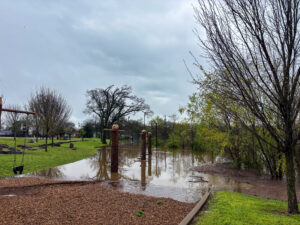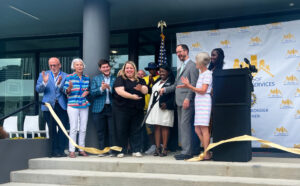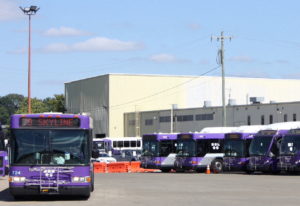While questions persist around the Music City Loop project’s feasibility and permits, the project isn’t a complete unknown — the Boring Company has one tunnel in operation: the Vegas Loop.
Schools, roads and East Bank infrastructure: Nashville’s new $532 million capital spending plan
The plan marks an increase of $5 million since last year’s plan.
NashVillager Podcast: Funding Nashville’s public health
What happens to public health in a funding pinch? Plus, the local news for April 11, 2025.
NashVillager Podcast: Welcome to budget season
How does Metro make its money? Plus the local news for Nov. 13, 2024.
Nashville’s churches — and their land holdings — could boost affordable housing. Here’s how Metro wants to help.
The role of churches, and the land they own, are an increasing focus of Nashville’s efforts to improve housing affordability. Federal funding will help Metro take a coordinating role.
Metro opens first permanent housing option, with on-site addiction treatment and mental health services
Until now, much of the city’s approach to homelessness has been about short-term support, like emergency weather shelters or temporary transitional housing.
‘We need each other’: As Darren Jernigan leaves the state for the city, he looks to mend frayed relationships
After more than a decade in the statehouse, Darren Jernigan now serves as manager of state and federal legislative affairs in the Nashville mayor’s office.
Affordable housing, bike safety and the arts dominate funding requests during Nashville Metro Council’s pre-budget public comment period
Given an invite to share thoughts about Nashville’s spending priorities, residents turned out for Tuesday night’s Metro Council meeting.
Breaking down Nashville Mayor Freddie O’Connell’s $514M capital spending plan
The plan’s top investments include education and city maintenance — such as upgrades to fire stations, libraries and greenways. It also devotes around $39 million to transit needs and $25 million toward early investments into the East Bank development.
hubNashville launched 7 years ago. Here’s how Metro’s customer service system has evolved over time.
Metro customer services hinges largely on hubNashville, a system where residents can place a huge range of requests. Its usage has tripled in the past five years.










